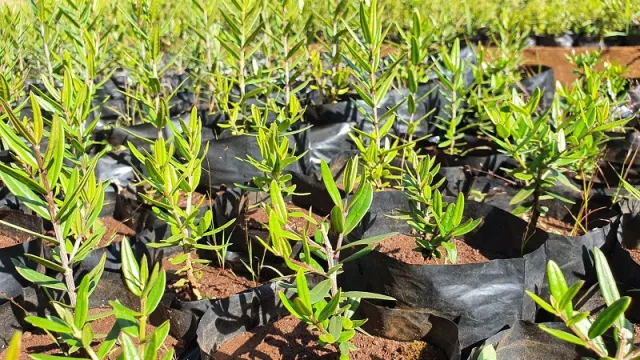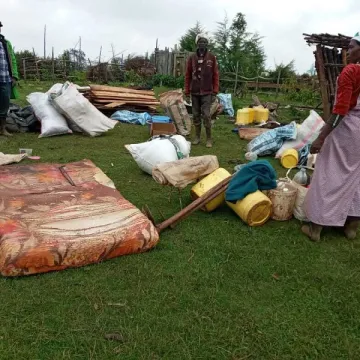In Kenya, public concern for climate change drops sharply

An estimated 43 percent of respondents in Kenya recognize that forest loss is attributable to negative impacts of climate change. At 43 percent, Kenyans' concern on forest loss exceeds the global average of 35 percent.
A new survey shows that an public concern for climate change agenda has experienced a sharp drop in Kenya even though closely related subjects such as drought and floods still rank high up in disscusions.
According to the 2025 Global Consumer Awareness Survey—conducted with IPSOS across 50 countries, Kenya ranks highest globally in public concern for deforestation despite declining concern about climate change.
At the moment, the issue taking the lion share of public discourse across the globe is war and conflict at 52 percent while climate change trails at a distant 31 percent.
The report noted that Kenya has experienced a steep decline in climate change concern since 2022 at 42 percent to 30 percent currently.
However, when the respondents were asked about forestry issues specifically, they expressed high concern for matters deforestation. The survey shows that nearly half of Kenyans or 47 percent cite deforestation as a top concern – the highest globally.
Concern for the impact of droughts and floods, scenarios that are closely tied to forest disruption also ranks high at 40 percent, above the global average 29 percent.
Additionally, 43 percent of respondents in Kenya recognize that forest loss is attributable to negative impacts of climate change. At 43 percent, Kenyans' concern on forest loss exceeds the global average of 35 percent.
“Even as global priorities shift, people here continue to care about forests and the livelihoods they sustain. They want transparency, fairness, and proof that the products they buy make a real difference,” said Annah Agasha, Deputy Director, Forest Stewardship Council Africa.
Across the continent, South Africa shows a more moderate but still significant decline in climate concern from 32 percent in 2022 to 25 percent currently.
Droughts and floods are also a major concern in the East African country, with 40 percent of those surveyed identifying them as key issues, higher than South Africa and Egypt by 10 and 13 points respectively.
Egypt reports that 32 percent of respondents identify wildfires as a top environmental challenge, highest among the three surveyed countries in the African region.
“When people see forests under pressure, they connect the dots between nature, water, and livelihoods. The message is clear: protecting forests isn’t just about trees — it’s about stability, resilience, and hope in a changing climate,” said Subhra Bhattacharjee, Forest Stewardship Council (FSC) Director-General.
Since he took over in September 2022, President William Ruto's administration has been one of the strongest advocates for climate action across Africa, rallying global powers to accelerate funding to stem the damage caused by climate change.
Across Kenya, the President has rallied individuals and corporates to join hands in his push to plant 15 bilion trees as part of the country's strategies to increase forest cover.
However, since U.S. President Donald Trump took office, the push for financing for climate action has faced challenges.
Since February, Trump has repeatedly called climate change the "greatest con job ever perpetrated on the world" and described climate policies as a "hoax" and a "scam," sentiments that seem to have slammed the break on climate action push in Kenya and around the globe.
While addressing delegates at the United Nations General Assembly in New York last Month, Trump criticized climate action, calling the concept of a carbon footprint a hoax.
During the speech, delegates reportedly shook their heads as the U.S. leader asserted that U.N. projections were wrong and that renewable energy was too expensive.





